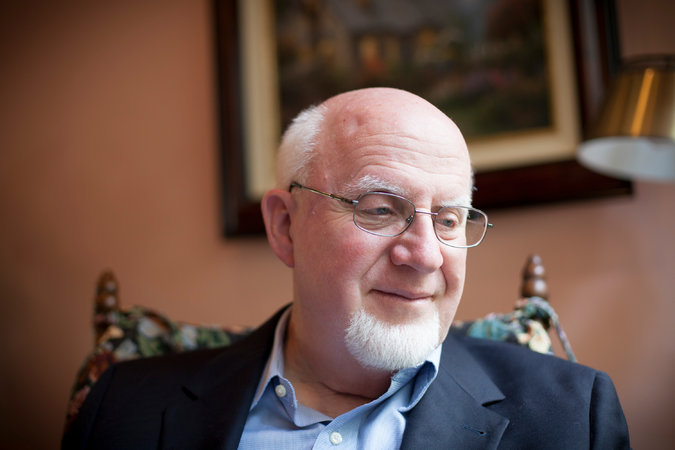Knowing So Much But So Little – by Edward Fudge
Jan 10, 2016 2117

The second year of high school found me enrolled in a vocational class in commercial printing. A loud, smelly machine called a Linotype made a “line o’ type” from melted lead. The printing “press” inked the type with hard rubber rollers and “pressed” paper sheets against the type like a giant rubber stamp.
My first assignment was to clean the rollers with gasoline and a large cloth. I saw what looked like six or eight large ink rollers, scrubbed them with a vengeance, then asked the boss to check my work. A quick look later he turned the big flywheel that moved the rollers, bringing up from somewhere in the depths a second set of rollers badly in need of a good cleaning.
I thought I knew what to do and how to do it. Instead, to my embarrassment, I discovered how very, very little I knew.
That is much the way I feel these days, as I seek to retain and regain control over a damaged body and mind that play havoc with moods and emotions, randomly ignore or distort operating orders from the brain, create a variety of pains in both legs and feet, and make up new rules as we go along.
Two culprits have joined forces to cause this mischief. First is Parkinson’s Disease (PD), with whom many of you are all too familiar as either caregiver or patient. My diagnosis was 13 years ago but the disease remained largely invisible for another decade until repeated back surgeries stirred it into action.
The second culprit is a disease process known as “severe sensory-motor polyneuropathy,” recognizable by physical weakness and disability and by chronic pain.
As stated above, I am rapidly learning how little I know about things I thought I knew. After all, I have been a preacher/teacher for 50+ years and a lawyer for nearly 30. In both professions others looked to me as an “answer-man” concerning things in heaven and on earth respectively.
I am rapidly learning how little I know about things I thought I knew.
But regardless of the number or the nature of the questions we have answered, I suspect that none of us, when assaulted by misfortune and called to suffer, will ever fully understand the answers to the big questions we all find ourselves asking – questions such as “Why?” and “Why me?”
Yet in this frustrated world groaning for redemption we can improve our perspective and learn to ask instead, “Why not me?” And we can always work on learning how better to wait (Romans 8:18-22).
Meanwhile, the best knowledge we can gain is not “book–knowledge” as such, but relational knowledge born of experience in applying biblical principles to life as we encounter it together day by day (Colossians 1:9- 11).
On this subject, the simplest truths are often the most profound, and we can sum them up as faith, hope and love. The most important truth is that God loves us in spite of ourselves, which means we can trust him whatever the present appearances.
The final chapter to our story is not yet written, making hope possible, necessary, and very relevant. And when all is said and done, and there is nothing more we can say or do to help, we again confess to God that he is all we have and that we are in his hands to stay. It just might be that the little we do know turns out to be very much indeed.
– Edward Fudge (Used with permission from Gracemail.)


Leave a Reply